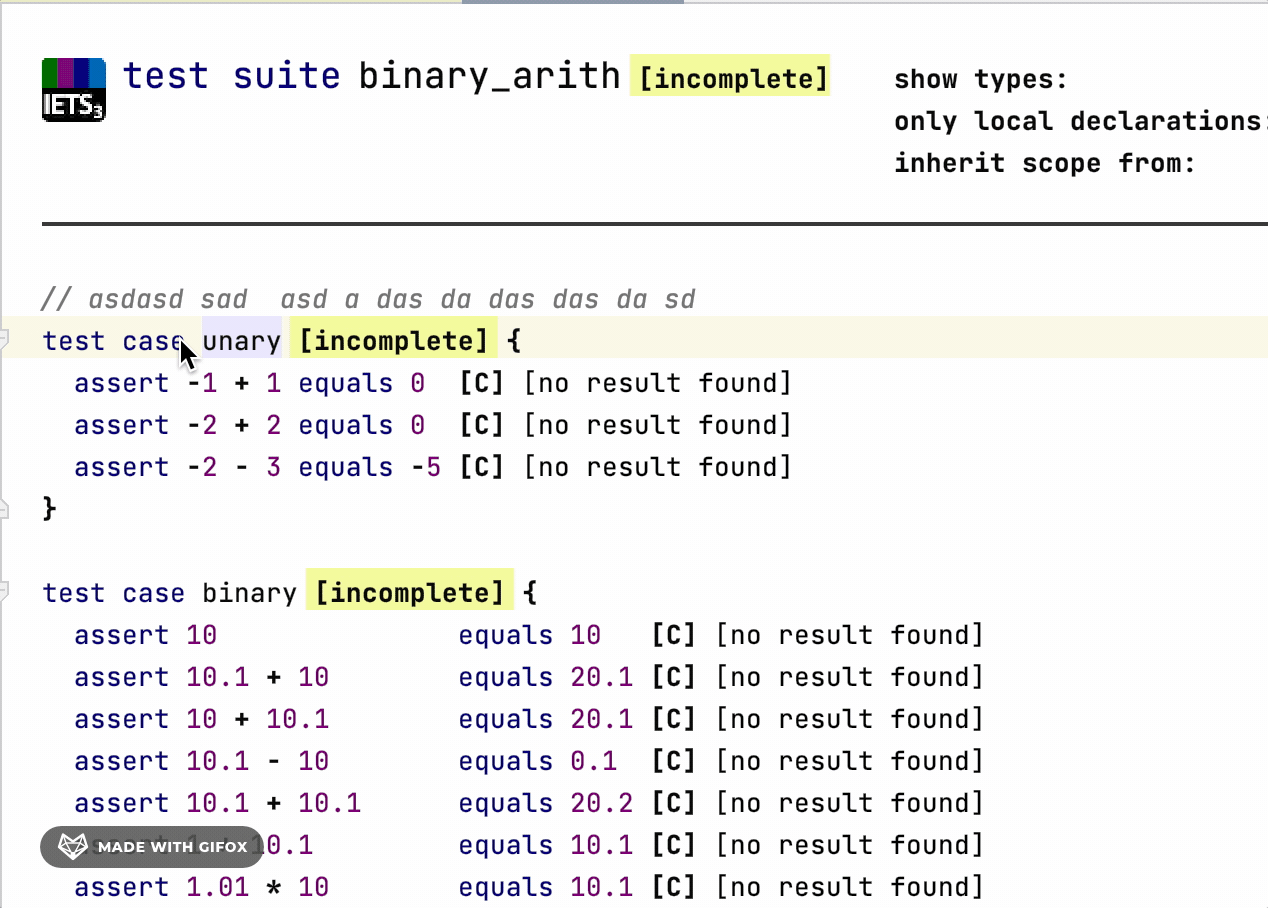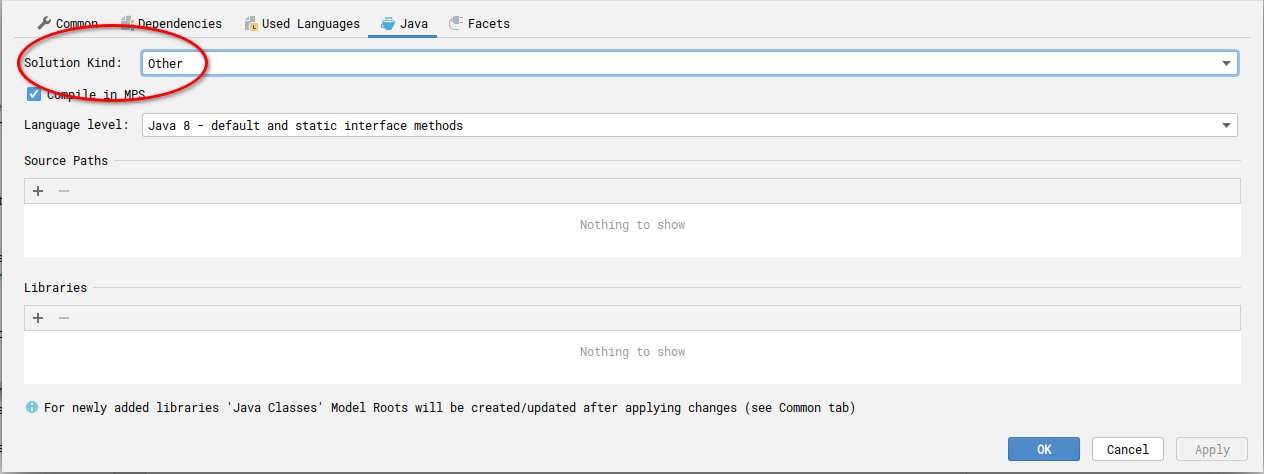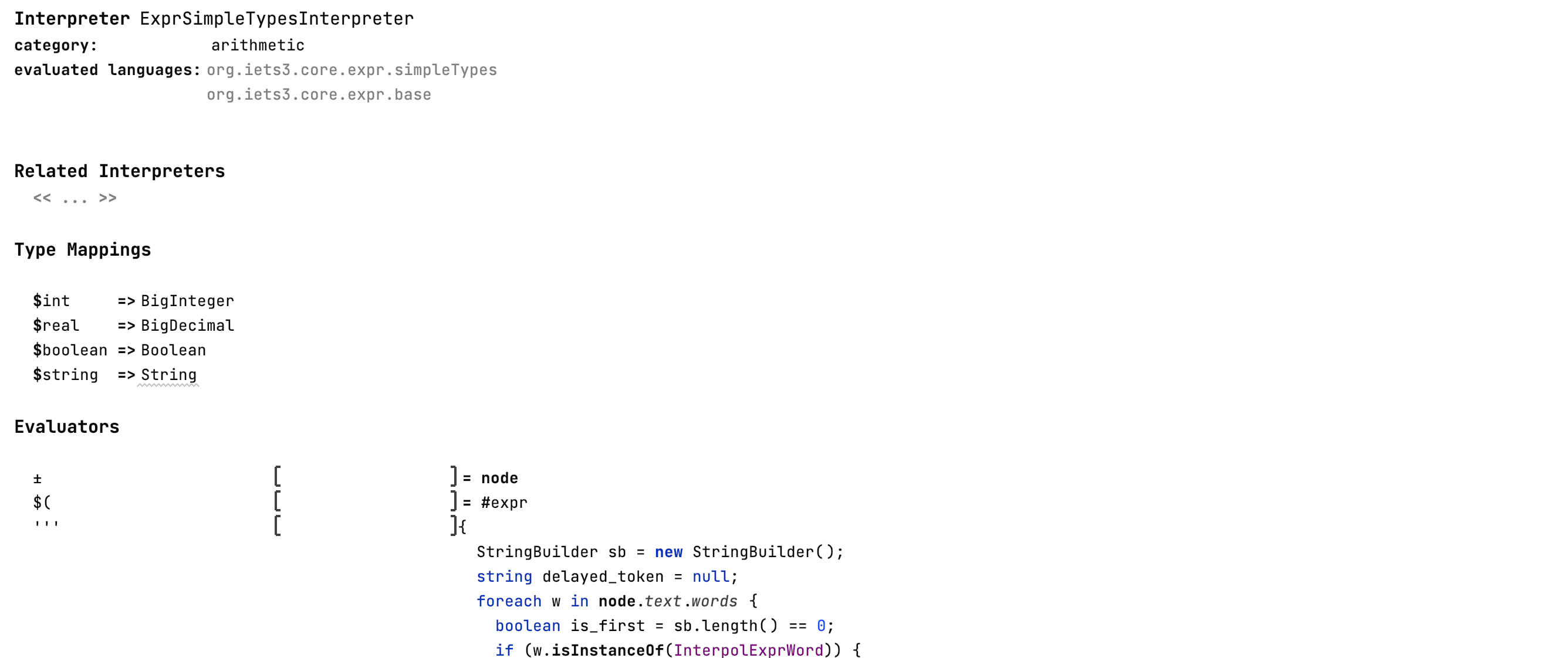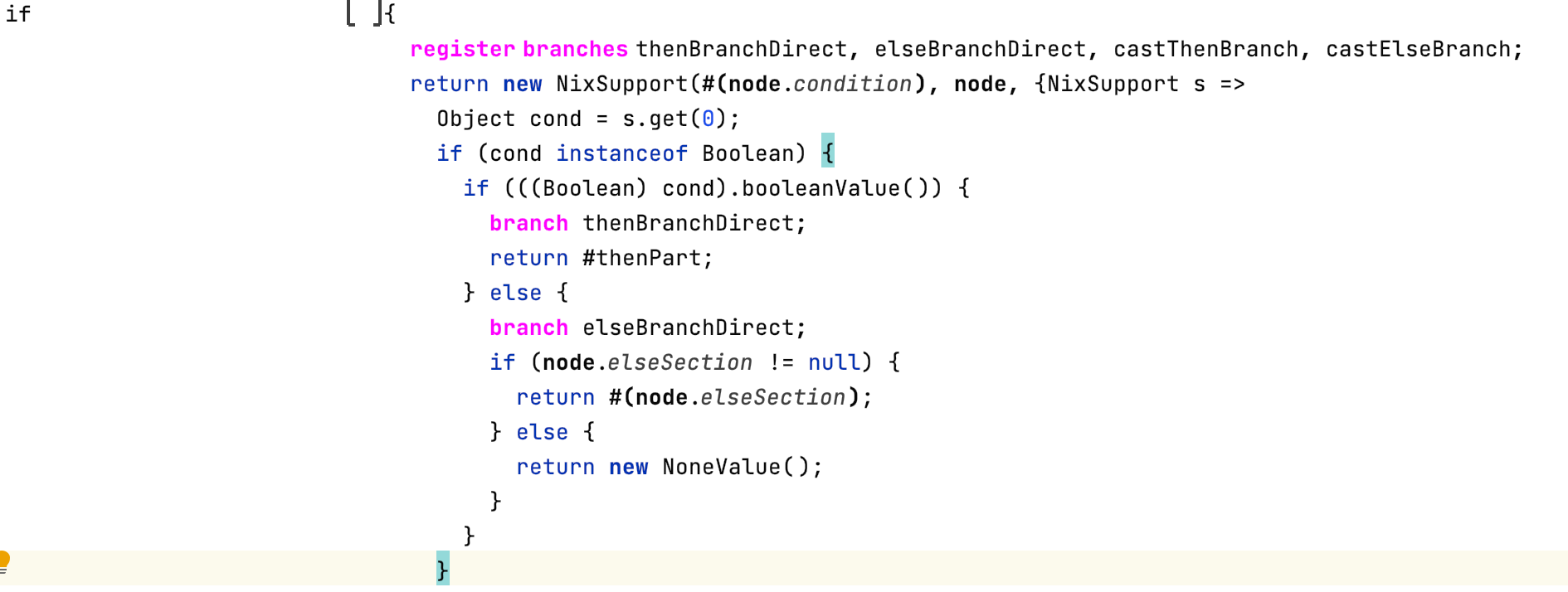Interpreter, Coverage, and Tracing
The interpreter lets you interpret code on the fly. You can use it instead of the standard approach by writing an MPS generator and executing the code this way (e.g., executing Base Language code). The result of invoking the interpreter is a Java object.
In the GIF, you can see the interpreter executing a test case that contains assertions written with KernelF ⧉. The MPS generator isn't involved in the execution at all.
Creating an Interpreter¶
To create a new interpreter, create a solution containing the interpreter and import the language com.mbeddr.mpsutil.interpreter.
Make sure to set the solution kind to Other in the module properties.
Now create a new model inside your solution, create the new interpreter, and give it a name. The category should be arithmetic so that other interpreters of this category can also use this interpreter, but you can also use different categories. A demo Java interpreter ⧉ exists in mpsutils (mbeddr) that uses the category java. You don't have to set the evaluated languages: they are automatically calculated based on the declared evaluators.
In the related interpreter section, you can define that the current interpreter should run before or after another interpreter. An example ⧉ from KernelF: interpreter of the collections operations should run first because it reduces them to more straightforward statements. The lambda and base interpreter should run afterward.
The type mappings section can declare mappings from types that implement the IType interface to either a Java type or another custom type that implements the IType ⧉ interface.
An evaluator consists of a left and right side: the left side is a concept that should be interpreted. In the inspector, you can set cacheValues to true to enable caching. When the interpreter reaccesses the same value, the cached value is returned instead of recalculating it. Unchecking Tools → Enable Interpreter Cache in the main menu can turn off the interpreter cache.
The right side contains an expression or a block and must return a value. The node expression refers to the currently evaluated expression. A few expressions start with #. Their corresponding short descriptions explain them. Use the #-> expression to call functions (search for usages globally).
The right side can return a Java object (including null) or call another interpreter with one of the #-expressions. Another interesting expression is the env expression. Use this array to save values for other evaluators. The key must be a node. If you don't have a node, you can use a helper class with static dummy nodes as keys. An example could be a dot expression where the operation needs to access the operand, for example, "hello".startswith("he"). startswith() is the operation, "hello" is the operand:
When the current interpreter is not suitable for interpreting the current node, use the expression tryOtherInterpreter to use the next interpreter to interpret the current node:
Use the castUp expression to cast a Java (Base Language) expression to a type.
For example, if the expression is of type Number (numberInput) and the target type is float,
numberInput.floatValue() would be called.
The $ expression returns the concept's type. Use it for type mappings and child-type constraints you enter in the middle of evaluators. For example, the evaluator of a modulo operator might require that the left and right expressions are of type integer. Otherwise, the evaluator shouldn't be used:
Use the context expression to access the interpreter configurations, the cache, and the root interpreter, and contains some other useful. You can, for example, use it to access the environment from a Java class by executing a method with the context as a parameter. Then you can access the environment by calling context.getEnvironment(). The environment can be nested by calling push and pop. The interpreter uses the topmost environment in the stack. Use the is-evaluable expression (#?) to check if an evaluator for a specific node is available.
Code Coverage¶
There's also support for code coverage inside the editor. Code coverage checks which part of the code the interpreter has visited. For more information, consult the Wikipedia page ⧉. You can find out, for example, which parts of the code aren't covered by tests:
There's support for coverage of single nodes but also branches. An example of a concept that uses branches in the data flow is the if and else blocks of an if statement. To register branches, use the register branches statement. To visit a branch, use the branch statement. When visiting a node, the node, the node's concept, and the evaluator are automatically marked as covered. For the children of the node, there's the list coverage statement which visits a list of nodes, and the simple cover statement. The former is, for example, used for the elements of a map literal. The coverage information can be accessed and set through the coverage variable.
Calling the Interpreter¶
For IETS3 use the class IETS3ExprEvalHelper. If you can't use this class, use the following code:
Other methods don't need coverage, a context object, etc. etc. The easiest way is to call helper.evaluate which returns a Java expression.
Final Notes¶
The interpreter doesn't support multithreading. It can also be slow when called too many times.
It's also recommended not to call the interpreter from the generator when searching for interpreters. MPS might deadlock because it starts indexing. You might get away with it by calling the interpreter inside the runnable of DumbService.getInstance(project).suspendIndexingAndRun(). You can't return the value from the runnable, but you can assign it in a method of an object outside the runnable.
Examples¶
- KernelF: ExprBaseInterpreter ⧉
- Mbeddr: JavaInterpreterBase ⧉








